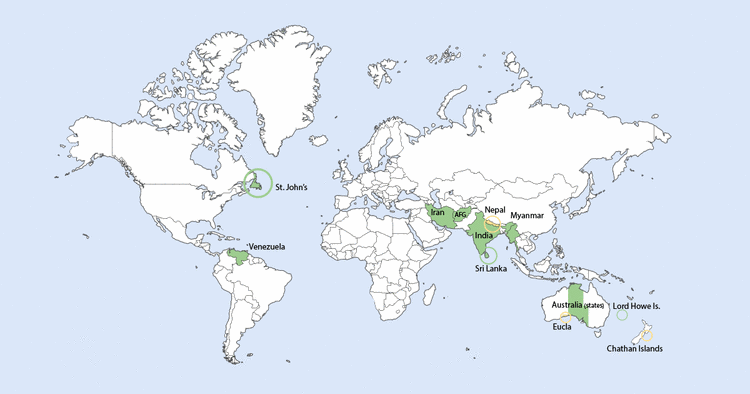The way I see it, there are currently three possible answers to the question proposed in the thread title (the question assumes the same timezone is kept all year and ignores daylight saving. I do not wish to debate whether we should adapt daylight saving in this thread but rather, assuming we didn’t, discuss which timezone is most appropriate).
1) GMT - This is the timezone we adapt to throughout the course of winter. It allows for light much earlier in the morning, at the expense of light in the evening. This is the “natural” timezone for our location on earth and allows for the “astronomical” times to align most with our actual times.
2) BST/GMT+1 - This is the timezone we assume for the majority of the year (March - November) and allows for much more daylight in the evening at the expense of daylight in the morning. Despite not aligning perfectly with the astronomical times, this timezone does tend to align better with the “behavioural” aspect of time (ie waking up around 7-8am when it’s light and making the most of the daylight later in the day, up to almost 10PM close to the summer solstice!)
3) GMT + 30 - Not a currently used timezone, but a proposal I read recently which makes the use/benefit of both GMT and BST. Essentially halfway between the two currently used (GMT + 30 minutes and BST - 30 minutes) This timezone doesn’t quite align with natural astronomical cycles nor does it align with societal behavioural patterns, but it “meets in the middle” of these two concepts. It’s an interesting concept I hadn’t considered until recently, however, to save the hassle of changing the clocks twice a year, I would definitely be up for the concept if trialled!
Personally, I’m a supporter of (2) mainly, as I feel it aligns with the daily life of the majority of people better than the other options, however I’d be open to trying (3)!
1) GMT - This is the timezone we adapt to throughout the course of winter. It allows for light much earlier in the morning, at the expense of light in the evening. This is the “natural” timezone for our location on earth and allows for the “astronomical” times to align most with our actual times.
2) BST/GMT+1 - This is the timezone we assume for the majority of the year (March - November) and allows for much more daylight in the evening at the expense of daylight in the morning. Despite not aligning perfectly with the astronomical times, this timezone does tend to align better with the “behavioural” aspect of time (ie waking up around 7-8am when it’s light and making the most of the daylight later in the day, up to almost 10PM close to the summer solstice!)
3) GMT + 30 - Not a currently used timezone, but a proposal I read recently which makes the use/benefit of both GMT and BST. Essentially halfway between the two currently used (GMT + 30 minutes and BST - 30 minutes) This timezone doesn’t quite align with natural astronomical cycles nor does it align with societal behavioural patterns, but it “meets in the middle” of these two concepts. It’s an interesting concept I hadn’t considered until recently, however, to save the hassle of changing the clocks twice a year, I would definitely be up for the concept if trialled!
Personally, I’m a supporter of (2) mainly, as I feel it aligns with the daily life of the majority of people better than the other options, however I’d be open to trying (3)!


 The winter mornings stay dark too long if we have year-round BST. Conversely the summer mornings would get light too early if we have year-round GMT - they get light rather too early for 2-3 months for my liking even under BST (admittedly I'm a rather extreme night owl).
The winter mornings stay dark too long if we have year-round BST. Conversely the summer mornings would get light too early if we have year-round GMT - they get light rather too early for 2-3 months for my liking even under BST (admittedly I'm a rather extreme night owl).